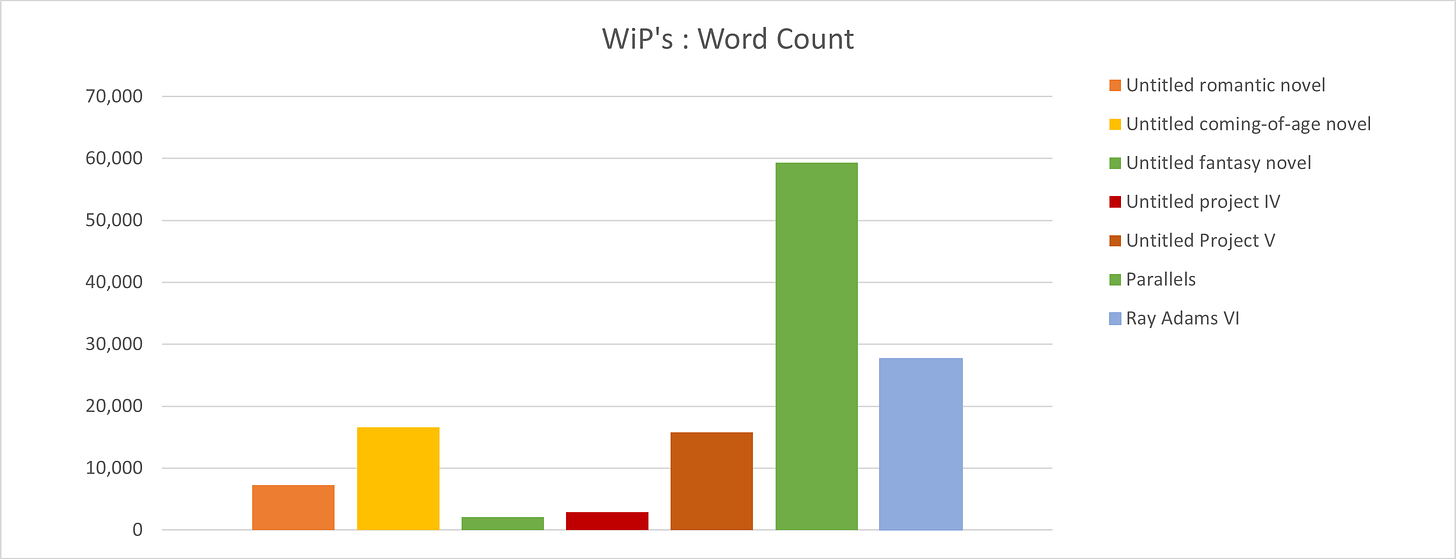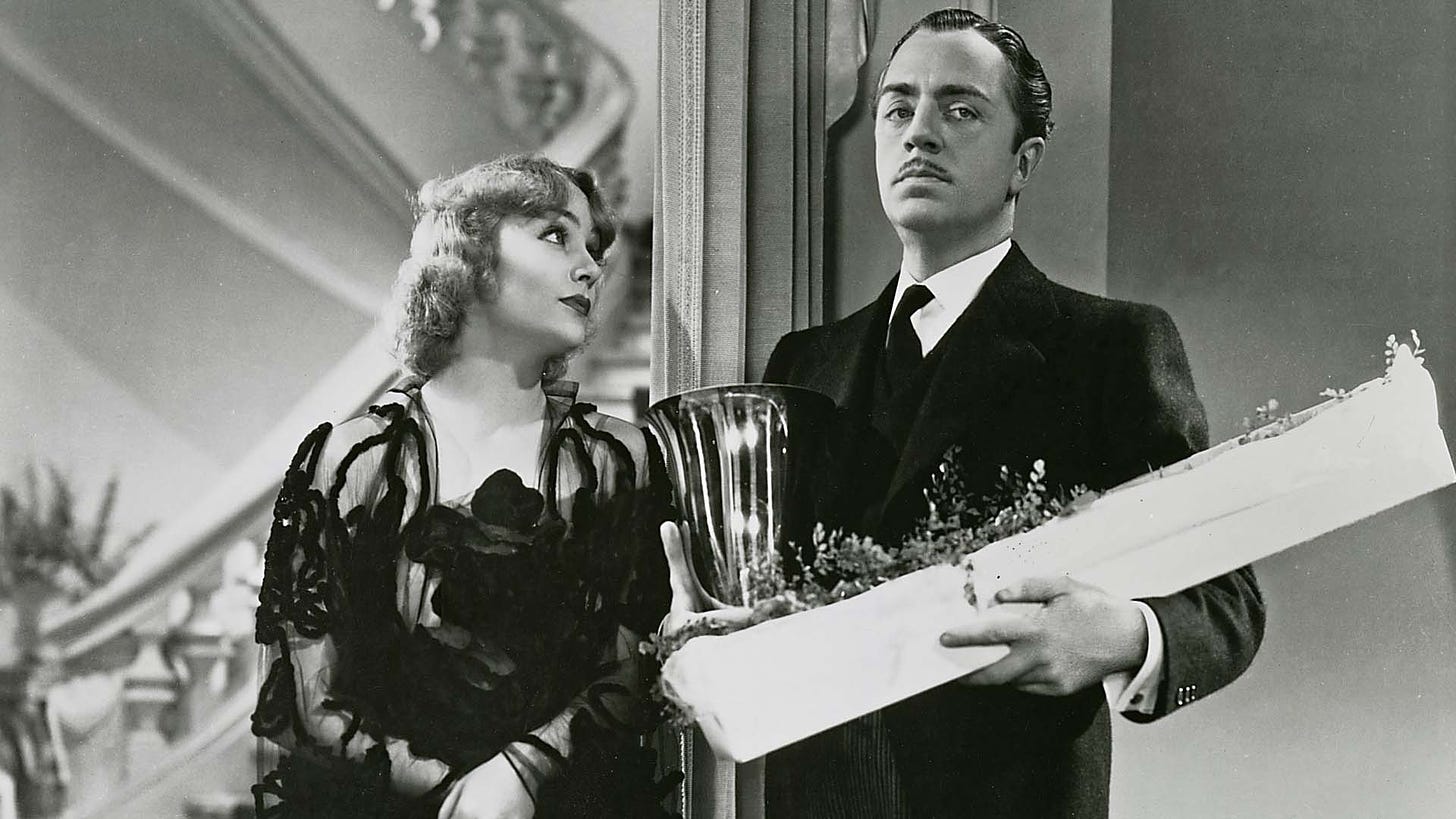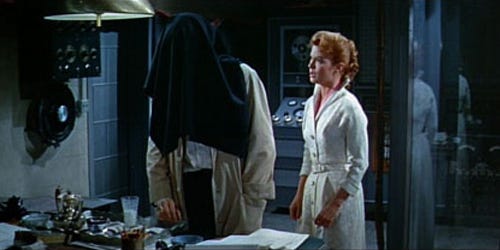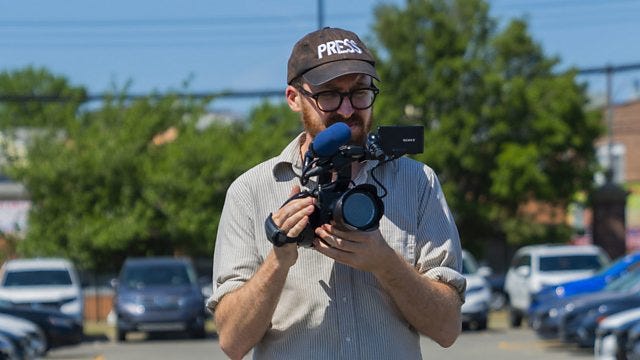WRITING:
Been a slow week on the writing front this week. As you know, Mondays are my traditional writing days, and last Monday I spent most of the day driving back from a distant county after a visit to my in-laws. However, since my last update, I can happily inform you that I have got some work done.
The framing device for UP-V is working well and I’m hoping to get that into shape for putting in front of someone in the not too distant future.
My focus, though, will be shifting for a while to Parallels, after getting some very nice feedback last week. All hush-hush, no jinxing it, but the words “fantastic” and “not like anything I’ve ever read” were used, so I’m pretty chuffed with that. More work required, however, and got some really good pointers on the refinements needed, so it’s head down for that for a couple of weeks or so. Hopefully it’ll mean we can up that wordcount a little…
Which is an odd thing. I’ve said before that a story only ever needs to be as long as it needs to be. Playtime’s Over was only a novella (about a third the length of Parallels in its current form) and yet when I expressed reservations over it to Henry1, he wasn’t bothered at all. It was exactly as long as it needed to be to tell the story I wanted to tell. That’s all that mattered. And he’s absolutely right.
Yet part of me does want to nudge Parallels up a bit and I’m not 100% sure why. After all, I haven’t been asked to. I admire the short story as an artform, I think it’s vastly underrated, so why am I growing obsessed with wordcounts? I can’t possibly feel invalidated as an author for only having shorter works2, can I? I mean, that would be lunacy. I very much hope I’m not getting tricked into believing that weight equals gravity, that a Serious Work of Literature has to be lengthy. Animal Farm, Of Mice and Men, The Old Man and the Sea, Slaughterhouse-Five, Fahrenheit 451, The Outsiders, The Great Gatsby - all classics3, all under 50k words. And yet, and yet…
The Hugo Awards judge a novel as 40k+, likewise the Nebula Awards. Start googling, and you can find useful pointers such as “Most novels should fall between 70,000 and 110,000 words.” and the astonishingly meaningless…
I mean, it’s not is it. If over 40k is a novel, 50k isn’t the minimum, 50k famously being a bigger number than 40k. Mind you, that same article says that “Anything over 110,000 words is considered too long for a fiction novel.” before pointing out in the very next sentence that “Each book in J.R.R. Tolkien’s The Lord of the Rings trilogy has an enormous word count, with the longest clocking in at over 175,000 words.” So, umm, okay…
There are, of course, practical implications that weigh on publishers’ minds, who ideally don’t want a book that’s either going to (i) be very expensive to print or (ii) disappear when you put it sideways on a shelf.
Ultimately, though, it has to come down to what works for the story. It has to. Nobody wants a book that rushes through critical points, but equally nobody wants a book that pads things out unnecessarily. Surely as a writer, you should know whether your story is too long or too short. A good publisher may be mindful of the practical considerations mentioned above, but should still guide you towards making your story the best it can be.
I have enjoyed:
My Man Godfrey - William Powell plays the down-at-heel bum pulled out of the gutter by Carole Lombard’s wealthy Manhattanite to become her eccentric family’s new butler in this 1936 screwball comedy. It’s an absolute delight of a movie, with Powell and Lombard giving effortlessly perfect performances and a caustically witty script. Cracking support too, from Alice Brady as Lombard’s mother and Gail Patrick as her scheming sister.
The Fly - The 1958 original with Vincent Price, this is. Price very much in a supporting role, which I wasn’t expecting, with David Hedison and Patricia Owens leading the show. For all its ridiculous conceit, it’s all played remarkably straight, especially by Herbert Marshall as the investigating officer.
The only thing that bothered me was why you needed goggles to watch the machine work, but not if you were actually in it. And if the atoms of the man got mixed up with the fly, how come all his clothes were okay. And… okay, you might need a little suspension of disbelief.
She Wore A Yellow Ribbon - He may be an Oscar winner, but I think it’s fair to say that most of us would, if drawing a distinction between great actors and great movie stars, put John Wayne in the latter category. Even John Ford, who made 23 pictures with Wayne, was so surprised by the latter’s performance in 1948’s Red River that he was famously moved to exclaim “I didn’t know the big son of a bitch could act!”
Red River is great, and so is Yellow Ribbon. Wayne is superb, playing a retiring US Cavalry Captain (the character was 20 years older than Wayne actually was at the time) and he manages to convey all the weariness, fatalism and care for his men that the role demands. It’s a great Western, with a great supporting cast, but it’s Wayne’s movie and he owns it.
How To with John Wilson - The third season is airing on the BBC now! Yay4!
Greyskin (Deixis Press) and Playtime’s Over (Propolis) are both available direct from their respective publishers, as well as from all the usual places, online and off. You can also support my work by buying Ray Adams’ self-published books, or by simply buying me a coffee. You can also pay for this free newsletter, if paying for free stuff is your jam.
Henry is the owner of Proplis, Playtime’s publisher. He was also the first publisher to take a chance on Eimear McBride’s A Girl is a Half-formed Thing. I mention that whenever I can.
Okay, Greyskin was longer than Parallels currently is, but although I saw it as a cohesive whole, it was a patchwork whole constructed from smaller narrative elements.
Just kidding, we all know The Great Gatsby is terrible.
I first stumbled over the show in 2022, and said this about it.










110,000 words in, and I’m realising that my memoir, FURTHER, has only 70% of the stories told, and I’ll need to complete, and edit 50% away!